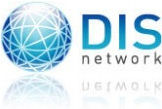DIS is designed to address many shortcomings of existing internet services. But it is also subject to the network effect which means that its value is function of the number of users.
It's like a TV broadcasting system. Whatever the quality of the technology, without interesting broadcasts it won't attract users and without users it won't attract producers and without producers it won't get attractive broadcasts and then again no users. But when the feedback in such system becomes positive we get a virtuous circle which amplifies its spinning by itself. And once the virtuous circle is spinning one can tap its energy with advertisement, freemium or even a fee if the traction is strong enough.
To bootstrap it, one has to pick the right TV broadcast which has to be one that people want to see while also simple and cheap to produce. As you may guess this is a strategic choice.
Starting such type of system is not easy, but once rolling it is quite safe because it is difficult to stop and provides thus a protection against competitors. A good example is Google failing to catch on You Tube which ended up buying it.
Like the TV broadcasting system, DIS offers the liberty degree to pick the right bootstrapping application. It has to be something that people want while being also cheap and simple to produce.
The business model is also strategic. Offering a free service means not tapping energy from the virtuous circle which is good to get maximum acceleration. But at some point we need to tap energy from it so that we can invest it in development of new features and make it more attractive.
The business model and the bootstrapping application are thus key to success, but don't expect me to present them here before they are in production.
|
0 Comments
Leave a Reply. |
AuthorChristophe Meessen is a computer science engineer working in France. Any suggestions to make DIS more useful ? Tell me by using the contact page. Categories
All
Archives
December 2017
|


 RSS Feed
RSS Feed
